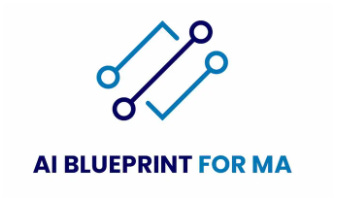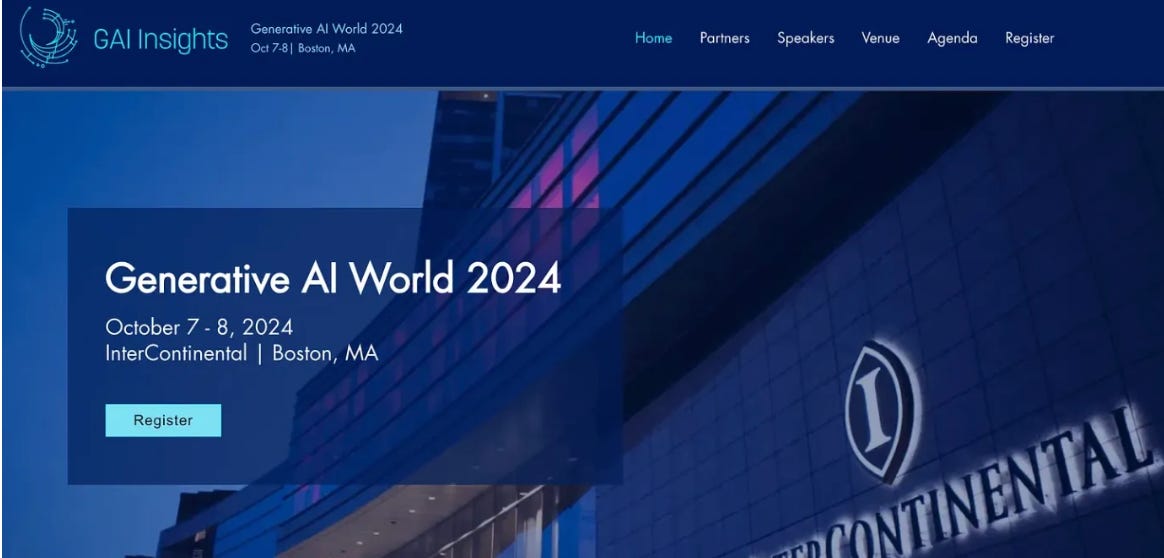Draft date 7 July 2024
By Dr. John Sviokla and Paul Baier, GAI Insights
The Industrial Revolution was built on three forms of assets (or capital): natural, human, and financial.
The digital revolution created three new forms of assets (or capital) (See Everson & Sviokla, 2018):
behavioral
network
cognition or intelligence
For the last two decades, countries, companies, and individuals have been willing to give up their behavioral assets (e.g. behavior data mined by Facebook and location services) and network assets (e.g. human connection data used by LinkedIn and Instagram) in exchange for free services. During this time, market participants lost control of these two assets. All Western countries, except South Korea in social media, have allowed the US giants to dominate.
GenAI now offers the ability to codify and amplify the third asset, intelligence. Since GenAI is even more powerful than social media, countries, companies, and individuals must act if they want to influence ownership and control; otherwise, big tech firms will gladly take it.
To frame and foster this discussion, we introduce the concept of Own Your Own Intelligence.
Cui Bono?
High-tech giants garnered the lion’s share of value and power from behavioral and network assets due to their impressive innovations, aggressiveness, and clever blunting of almost any major regulation or antitrust actions.
One measure of their influence is market capital. Five high-tech firms have $15T in market capitalization (Jul 2024) v. combined GDP of the third and fourth largest economies of the world, Germany and Japan, with $9T (2023)
Facebook now has 3 B members, way more than any single country has citizens.
As we enter this age of digital intelligence, countries, companies, and individuals have a choice: will they cede their intelligence assets to the tech titans, as they did in the past with behavioral and network assets, or will they take steps to “own their own intelligence”? This involves building digital intelligence in an ethical and humanistic way, incorporating the world’s best human dialogue and interface, security, data and creative ownership, and stewardship; all of which prevent exploitation of intelligence on a global scale.
What does OYOI Mean?
In 2000, Toys "R" Us, the dominant toy and baby products retailer in the United States, signed a ten-year partnership with Amazon to establish their online presence. In exchange, Toys "R" Us became Amazon’s exclusive supplier of toys and baby products. However, in 2002, Amazon began allowing other competitors to sell toys and baby products. Toys "R" Us sued Amazon and eventually recovered $51 million in damages, but by then, it was too late to catch up with the e-commerce trend.
Don’t let your organization’s intelligence fall behind like Toys "R" Us. All market participants will be better off if high-tech firms do not dominate digital intelligence.
We are at an Inflection Point
Now is the time for countries, companies, and individuals to summon the leadership, to exercise the will, and to build the means to own their own intelligence.
Companies that partner with high tech and make their products available using closed proprietary platforms are making a Toys "R" Us bet. They should carefully consider which types of intelligence are key to their success and create both short- and long-term strategies to gain the benefits of GenAI without giving away their core assets. Without action, a handful of, profit-driven, high-tech firms will extract and monetize the digital intelligence of market participants.
Components of an alternative path such as open source, new partnerships, and innovative products are emerging, but they are not yet sufficient.
Step 1: Join the discussion
Sovereign countries, companies, and individuals need to join this discussion and debate on forward paths. Current regulatory mechanisms are useful but not sufficient. Awareness needs to be raised, alliances formed, and laws enacted.
We, the global community, did not have a meaningful dialogue about social media, and we have seen its downside. GenAI is more powerful. We need to coordinate at this inflection point and find ways to own our intelligence and avoid even more digital servitude.
Notable upcoming events
Weekly GenAI Learning Lab (Zoom call, free) 7p ET/ 4 PT every Monday. Signup here. Showcase: Comparing use cases in different LLMs and using tools like ChatHub.cc
BOSTON/MA AI Ecosystem. The mission of AI Blueprint for MA is to implement practical efforts to attract, retain, and grow AI talent in New England. Join us this Friday at 9a ET for our monthly “Get Organized” Zoom call. Email me to be added to the calendar invite. All meeting are open to the public and recorded. Here is last month’s meeting.
Oct 7-8 (2 days. in-person, paid): GAI Insights’ Generative AI World 2024 Conference in Boston, MA. We have a great set of confirmed speakers already. Inflection AI is our Platinum sponsor. UBS and Quantum Gears are our Gold sponsors, and Goodwin is our Legal Sponsor.
Generative AI World 2024 occurs Oct 7-8 at the beautiful Intercontinental Hotel in Boston on Boston Harbor and focuses on driving business value with enterprise GenAI with case studies
Audience titles; Board member, CEO, SVP Digital, Chief Innovation Office, CTO, CDO, and AI team leads
350 attendees, 60 speakers, 50 case studies, 30 AI startups, 15 exhibitors
Media: CIO Magazine, Wired Magazine, and 15 others
Platinum sponsor: Inflection AI
Gold sponsors: UBS and Quantum Gears
Bronze sponsor: Goodwin
Non-profit supporters: MassTLC, AI Blueprint for MA and Mass Robotics
Confirmed speakers
Shikhar Ghosh, Professor, Harvard Business School
Melissa Smith, CEO, WEX (NYSE: WEX)
Bill Fandrich, EVP and CTO, Blue Cross Blue Shield of Michigan
Sri Elaprolu, Director, AWS Generative AI Innovation Center
Ramesh Raskar, Professor and Director Media Lab, MIT
Ted Shelton, COO, Inflection AI
Yasmina Benkhoui, Senior Manager, NVIDIA
Andy Roberts, AI Architect, Microsoft
Kevin Shatzkamer, Managing Director, GenAI, Google (NASDAQ: GOOG)
David Edelman, Professor, Harvard Business School
Vinay Gidwaney, Chief Product Officer, OneMain (NYSE:OMF)
Nina Lee Grooms, Board Member, Alamo Group (NYSE: ALG)
Ian Roberton, Director Technology/AI, American Securities
Dr. Thomas Kingsley, Professor of Medicine & Biomedical Informatics, Mayo Clinic
Matt Lewis, Global Medical Analytics and AI Officer, Inizio Health
Jose Pedro Almeida, named World’s Top 70 Health AI leaders
Pieter Schouten, Chief Innovation Officer, Ensemble Health Partners
Sandeep Sacheti, EVP CIO, Wolters Kluwer
Jeffrey Rayport, Professor, Harvard Business School
Badri Raghavan, VP AI/ML, ResMed
Dr. Sahar Hashmi, CEO of Myriad Consulting
John Spottiswood, COO, Jerry
Pankaj Dugar, SVP GTM North America, AI21
Igor Jablokov, CEO, Pryon
Pat Condo, CEO, Seekr
Jen Stave, Director at Digital, Data, Design Institute at Harvard
Tom Davenport, Professor, Babson College
Anne Stemlar, MD Knowledge and Innovation, Goodwin
Mary Purk, Executive Director of AI, Wharton Business School
Erik Oken, Chairman, MidOcean Partners
Chip Hazard, General Partner, Flybridge Capital Partners
Judah Phillips, CEO/Co-Founder, Squark
Rudina Seseri, Managing Partner, Glasswing Ventures
John Werner, Founder, Imagination in Action
Rizwan Mallal, COO, Quantum Gears
Scott Kirsner, CEO at InnoLead & Boston Globe Columnist
Pete Blackshaw, CEO, BrandRank.AI
Katie Taylor, CEO Narrative
Chris McKay, CEO, Maginative
Phil Fersht, CEO and Chief Analyst, HFS Research
Toby Eduardo Redshaw, CEO, Verus Advisory
“I am afraid that our eyes are bigger than our stomachs, and that we have more curiosity than understanding. We grasp at everything, but catch nothing except wind.” - Montaigne
Onward,
Paul













